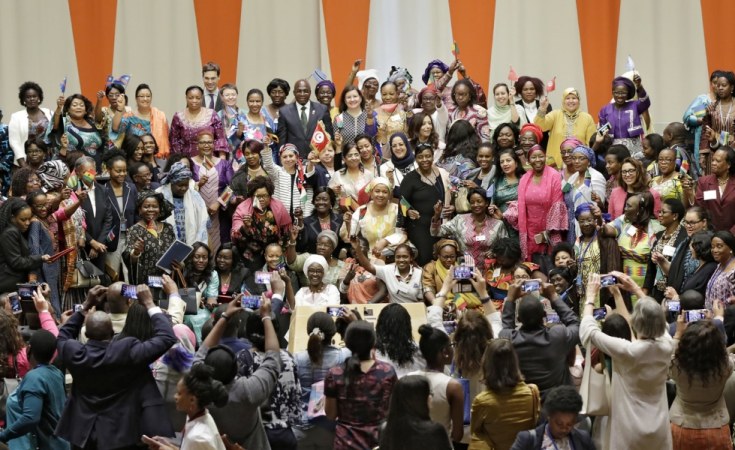“It is a capital mistake to theorize before one has data,” once said Arthur Conan Doyle’s famous fictional detective Sherlock Holmes. Conan Doyle’s use of the word ‘data’ in his stories is noteworthy. Not only did he portray Holmes as obsessed with observations and facts, but also as a data-driven decision-maker. The author was a scientist at heart, and he understood the power of facts and figures. His use of the word ‘data’ in his novels may have contributed to the rise of this word as a modern term and concept.
But what are Holmes and Conan Doyle trying to tell us? They are sending a simple, straightforward message that data is there to give us insight. It helps us make informed decisions by ushering us toward the truth without being misled by misconceptions or biases.
When applied to complex social challenges, data opens up a wealth of possibilities.1 , 2 It enables agile and evidence-based decision-making and has been invaluable in tracking progress toward meeting the Sustainable Development Goals (SDGs) . Critically, data has proved to be a vital tool in exploring the state of gender equality around the world.3 , 4 It has helped countries understand how to provide better economic opportunities for women, meet the healthcare needs of women and girls, and improve girls’ access to education.
It can also help shed light on persistent inequalities in public leadership—providing a clear picture of women’s engagement in policymaking and where progress is needed.
Since our founding, the Ellen Johnson Sirleaf Presidential Center for Women and Development (EJS Center) has worked to advance women’s public service leadership across Africa. Today, we are taking a step further. We are harnessing the power of data to bring change to the landscape of women’s leadership in Africa. We are creating a space where information about the status of women in public governance is easily accessible. With the support of local and regional researchers, we have gathered and analyzed data on women’s leadership in public governance across 15 West African countries—Benin, Burkina Faso, Cabo Verde, Côte d’Ivoire, The Gambia, Ghana, Guinea, Guinea-Bissau, Liberia, Mali, Niger, Nigeria, Senegal, Sierra Leone, and Togo.
The result is the EJS Center’s Data Hub for Women’s Leadership in Public Governance in Africa —an innovative online tool designed to provide detailed country-level insights on the milestones reached by women in public leadership on the continent. From achievements in all levels of government to national commitments on gender quotas and gender-sensitive legislation, the Data Hub lays bare the facts and figures and makes them accessible to all.
This tool, when used effectively, has the potential to change the status quo for women across Africa. Everyone who believes in equal representation in public leadership can use this resource to strengthen and guide their efforts. Insights gleaned from the data can further empower civil society organizations in their fight for equality. Policymakers and lawmakers can tap into the wealth of information on the status of women’s representation in public governance and use it to advance their gender equality agendas. Researchers and media professionals can use the information to spread reliable knowledge on women’s participation in politics and public life. The public can be better informed and, as a result, encouraged to take action and challenge the status quo in their countries to bolster women’s presence in public governance.
We should not underestimate the power of data; harnessing this power can be transformative for the prospects of millions of women around the world. We dismiss it or underutilize it at our peril. Without it, we could miss out on opportunities to make strides forward in our quest for greater representation for women in public leadership in Africa.
However, data alone will not do the work for us. It is up to us to understand it, process it, analyze it, and communicate it. It is up to us to work out the best way to use this information to create an enabling environment for women to access the highest levels of public leadership.
Having actively engaged in scientific research for decades in my former life, I know and appreciate how essential data collection, data analysis and evidence gathering are for filling information gaps, to proving a point of argument, and for establishing factual basis for making decisions. So, borrowing from Conan Doyle’s most famous literary character, it is safe to say that data is our ‘elementary’ starting point if we want to see positive change in women’s public leadership take root in Africa. Let us spark this change by harnessing its power.
1 https://www.un.org/en/global-issues/big-data-for-sustainable-development
2 https://unctad.org/news/borderline-reliable-data-women-crucial-measuring-empowerment-and-equality
3 https://www.unfpa.org/sites/default/files/resource-pdf/finalUNFPA_CSW_Book_20130221_Data.pdf
4 https://www.unwomen.org/en/what-we-do/ending-violence-against-women/research-and-data


